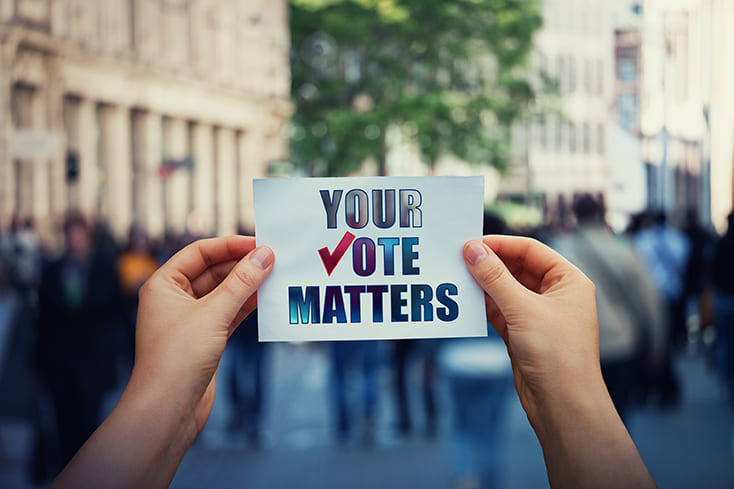October 23, 2020
By Chele Diamond

In my seven years as a social worker providing care for people with mental health and substance use conditions, I have witnessed first-hand the effects of public policy on the availability and quality of services for this vulnerable population.
So much about mental health is shaped by laws and policies developed by elected officials. Elected officials determine the allocation of resources and funding for mental health research and treatment. They decide how mental health is addressed within the justice system. They decide whether to implement more education, prevention and early intervention in schools.
It is for these reasons and more why voting for mental health is so important. A #Vote4MentalHealth means learning about candidates and how they plan to address the mental health needs of our communities. It means using your voice to advocate for what’s right.
Increasing Funding and Improving Access
Elections in November are quickly approaching. Meanwhile, the COVID-19 pandemic is severely straining the health care system and leaving more people uninsured due to job loss. Four in ten (40%) adults in America report that their mental health has worsened since the pandemic began.
There are growing concerns about how budget cuts will impact mental health due to pandemic-related revenue losses. And since elected officials determine how limited funds are allocated, we need aggressive policy measures now more than ever as mental health issues rise to the forefront.
A problem even before the pandemic, there is also a national shortage of mental health providers. Millions of Americans may not seek help when they need it because they lack access, have lost insurance coverage, fear stigma or do not know where to go or who to talk to.
Critical mental health programs, such as crisis response teams, jail diversion services, inpatient psychiatric facilities and supportive housing programs are underfunded as well, and unable to provide care for everyone who needs it. Additionally, if we want to advance cutting-edge treatment for mental health conditions, more funding is needed to identify improved evidence-based interventions, educate providers and implement best practices.
Elected officials can address these challenges by supporting policies that improve Medicaid and Medicare eligibility and coverage, decrease medication costs and increase the availability of mental health services. They can represent your voice on issues like suicide prevention, crisis response, long term care, scientific research and access to inpatient and outpatient mental health treatment.
You can influence what services are available for those experiencing mental health conditions in your community. When you #Vote4MentalHealth, you ensure your voice for mental health advocacy is represented by policymakers. Your vote matters.
Chele Diamond is a graduate student at Texas State University and a current public policy intern with NAMI Texas. After seven years in direct social work practice, she returned to school to promote social justice, influence public policy, and advocate for changes to better serve our communities.
Submit To The NAMI Blog
We’re always accepting submissions to the NAMI Blog! We feature the latest research, stories of recovery, ways to end stigma and strategies for living well with mental illness. Most importantly: We feature your voices.
LEARN MORE